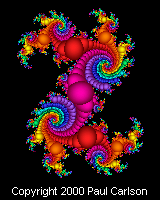
RACE & ETHNIC RELATIONS
Spring 2006

Course web site: http://www.csub.edu/~gsantos/
Course testing at CSUB's WebCT web site: http://webct.csub.edu/

Spring 2006

Course web site: http://www.csub.edu/~gsantos/
Course testing at CSUB's WebCT web site: http://webct.csub.edu/
|
Office: DDH-AA205 Office Hours:
|
Class time: 10:30 am - 12:35 pm Tue. & Thurs. Teaching Assistant: Ms. Edith Ramos |
TEXTBOOKS & WEB READINGS

COURSE CONTENT

This course is designed to provide students with a broad introduction to the field of race & ethnic relations in the United States. The historical and contemporary experiences of various ethnic and panethnic groups in the United States -- the so-designated European Americans, Native Americans, African Americans, Latinos/Hispanics, and Asian Americans -- are systematically analyzed based on the Healey textbook. Various sociological concepts are defined to explain the origins and history of the interactions between these groups from colonial times to the present; in short, we attempt to understand the history and dynamics of modern peoplehood in the United States, mediated by sociological theory.
A note of caution: there has never been a social consensus on, or a universal theory of, modern peoplehood, including theories of nation, race, and ethnicity; there hasn't even been agreement over the historical record of racial and ethnic relations in any specific country; such is the case with the United States. Much less can we find agreement on the theory and history of peoplehood encompassing human history. But there has been prolific writing on these subjects. We thus focus on the U.S. experience. The Healey's textbook is an excellent attempt at analyzing in some depth the rich historical sociology of race and ethnicity in a single modern country, the United States.
The emphasis will be placed on how race, ethnicity, & nationhood have been socially (re)constructed in the U.S., and how these categories relate to and are imbedded in various social structural processes such as modes of labor, free and forced migrations, conquest and imperialism, class stratification and class struggle, the role of the state, patterns of cultural dynamics, and gender relations. We elucidate the world historical contexts in which the social categories of race & ethnicity originated and evolved; and how they were affected by -- and in turn influenced -- the political, economic, and cultural processes of U.S. history.
The exploration of various topical issues and trends of peoplehood in the United States and worldwide will be pursued via the Annual Editions anthology of articles, and the large selection of readings and links placed in the course's web site.
COURSE STRUCTURE

Lectures/Videos:
Dr. Santos will lecture every class, either on the Healey textbook
or on topics not covered by it. Attendance to these lectures is
mandatory; absences, tardiness, and early leaving without prior
approval by Dr. Santos will be penalized. From time to time, the class
will watch and discuss a video
documentary. The final exam
(June 6, 11:00 am - 1:30 pm) will be
exclusively
based on the lectures & videos, so take good notes.
Activities Based on the Healey Textbook
For every chapter covered in the Healey textbook, students will be asked to do two types of assignments: (a) file an email essay-type report on the "Current Debates" section found at the end of the chapter -- this report is generated from within the course's web site; and (b) take the chapter test, using the WebCT system at Cal State Bakersfield.
The Annual Editions (AE) anthology of articles contains 51 articles organized in 11 "Units." Each week a Unit will be assigned and each student needs to freely choose two articles from that Unit to read and take a quiz on. The deadline for each week's AE 2-quiz assignment is the Sunday midnight at the end of the week it was assigned. The quizzes are very short and multiple-choice. You have 15 minutes to complete each, in any order you wish. Note that you may not take a second quiz on any given AE article. (NOTE: If you wish to improve a possible low quiz score, you may read & quiz on as many extra articles within an assigned unit as you wish, so long as you take these extra quizzes before the assigned Unit's Sunday deadline. The previous low scores will not be erased, but you may be able to improve your average score a little.)
To access and take an AE article quiz, do the same thing as before with the Healey chapter tests: click the frame button "Tests & Quizzes" to your left (found also at Dr. Santos' home web page); alternatively, you may simply click and bookmark the URL address for CSUB's WebCT: http://webct.csub.edu/. See testing details below.
Instructions on Taking Quizzes and Tests at CSUB's WebCT
To gain access: go to the CSUB WebCT site: click and bookmark the following URL address:If you are doing it from an off campus computer, make sure your browser is properly configured (click around WebCT support links and read how you can ensure your browser is properly configured).
You will need to know your WebCT ID and password. All CSUB enrolled students have a "Runner" email account. Your WebCT ID is the same as your Runner Mail Logon ID -- that is, whatever prefix goes before the "@runner.csub.edu" domain. For example, the WebCT ID for John Smith (jsmith4@runner.csub.edu) would be jsmith4. Your initial WebCT password is the last five digits of your Social Security Number. Once logged on to WebCT, you will be asked to change it immediately (if you have used WebCT before you'll need to enter your old password). Choose an easy to remember, easy to type new password. We also suggest that you set up your login hint immediately - and write all these codes somewhere where you will not loose them, nor expose them to theft by others.
If you need help: If you don't know your CSUB RunnerMail Logon ID or if you've changed your password and have forgotten it, contact the Student Help Desk at 664-2307, or the Student Technology Help Desk in the library at (661) 665-6677 or go to Lower Level Room 1 during office hours.
Be
prepared!
The maximum duration for each chapter
test is 60 minutes. After
each weekly deadline, access to any given chapter test will be closed
and no late testing will be possible. So make sure you have prepared
well, chosen a day, time & place well, and have ample time and
tranquility (with no
distractions) to begin testing; take time to read carefully
each question before you answer it - do not rush! (a common
mistake). You may take the test with the open book, but exclusively on
your own, please. Never plan to take a test in two or more
sittings; plan always to take
each test in a single session
(the computer usually freezes incomplete tests).
Save your answers every time. If you change your mind on a specific answer, don't forget to save it again! And don't forget to send your quiz/test to grade when you are done (lots of students forget this last step and their scores are not computed!).
Security precaution: If you are using a public computer always quit both the WebCT site and the browser (Netscape or Explorer) after you are done with testing -- otherwise, someone may access your own WebCT account and "try out" some tests! This is because your access codes stay active until you quit the browser. And remember, never share your testing access codes with anyone!
On seven out of the ten weeks of the course, a different list of web readings is assigned each week (see the weekly assignments below). To access the web reading lists click here or click the frame button "Readings" to your left. To generate and file a web reading report, click the frame button "Reading Reports" to your left.
Each week there is an assignment, students must choose a web reading
from the
assigned
list and submit a single web reading report roughly half-to-one
page long (again, it will be graded for critical thinking and accuracy).
(If the same list is assigned twice, just choose a different web
reading the
second
time.) The deadline
for any web reading report is, you guessed it, the Sunday midnight of
the week it was assigned.
To access the web readings: You will be prompted to enter a username and a password once per session; these two access codes are generic (the same for everyone) and will be announced in class. (Also note: these access codes are different from the username and password you have been individually assigned to access WebCT testing.)
Precautionary
note on all email formatted
reports: Due to campus web system freezes and
malfunctions,
it is highly recommended for students to first write and edit their
email
reports using a word processor, save their original text files in their
own
computers or disks, and only then open the email report form,
copy
and paste text onto it, then send it; do not worry about how "pretty"
or
"clean" the text is pasted! Before or after you paste your report text
onto
the form, always fill out all the other form fields with information
before
you send it, especially your official email address. Two copies of your
report
will automatically be sent: one to Dr. Santos' email address and the
other
to your "official" email address. Your backup files are your proof of
having
done the work on time and it is your responsibility to create
and
manage them. Also, always end
your reports with your full name.
Extra Points for Exploring New Web Sites or Dr. Santos' Links
There are two frame buttons to your left labelled
"Web Links" and "Link Reports".
The former button connects you to a large depository of web links
collected
by Dr. Santos, many of which are related to the course's subject
matter.
The latter button is a form to file a link report either on one of Dr.
Santos' links, or better yet,
on a new link you found on the web on your own. Students are
not required to file any link reports,
but those that do will receive a few extra points. Students may
submit their
link reports at their leisure and frequency, but only those submitted
by
June 1 will count for extra points -- and please, no more than five
reports per student. You will receive a copy of these reports as
well.
The Healey chapter tests
taken
together are worth 36 percent
of the final grade(3 points per chapter). The Healey chapter debate
reports taken
together
are worth taken together are worth 12
percent (1 point per report). The
Annual
Editions article quizzes are
worth 35 percent (a little
less that 2 points per quiz). The web
reading reports taken together
are worth 7 percent (1 point
per report). The final exam is
worth 10 percent.
The final letter grade will be assigned, on a total percentage scale of
0
to 100, as follows:
| 94-100 = A | 87-89 = B+ | 77-79 = C+ | 65-69 = D |
| 90-93 = A- | 84-86 = B | 74-76 = C | < 65 = F |
| 80-83 = B- | 70-73 = C- |
Dr. Santos will generally be available at his office, DDH-AA205,
from 2:00 pm to 3:00 pm, MWF.
Students are encouraged
to come see him or to call (664-2191) during these times. Alternatively
students
may communicate with Dr. Santos or Ms. Edith Ramos, our T.A., via
email
(her
email address is above). Please be advised, though, given the huge
volume
of incoming reports, that email communication has to be very brief and
to
the point. Clearly identify your business in the subject heading,
always write from your "official email address", and make sure to sign
off with your
full
name. Generally, Ms. Ramos will handle feedback on
all your email reports and Dr. Santos will give you feedback on your
tests,
quizzes,
and the final exam, as well as anything else having to do with the
lectures or the course.
Web
page frame buttons to the left of this syllabus:
|
|
|
|
|
| 1
|
|
|
|
| 2
|
|
|
|
| 3
|
|
|
|
| 4
|
|
|
Readings on Immigration |
| 5
|
|
|
|
| 6
|
|
|
|
| 7
|
|
|
|
| 8
|
|
|
|
| 9
|
|
|
|
| 10
|
|
|
|
| The Final Exam will be on Tuesday, June 6, from 11:00 am to 1:30 pm | |||